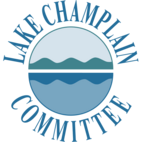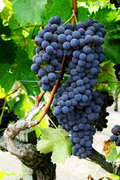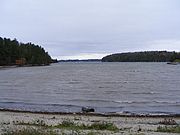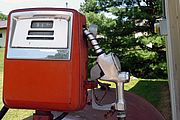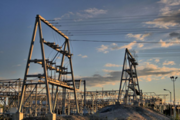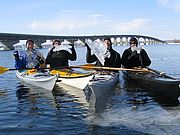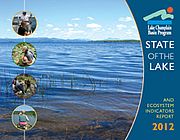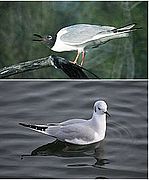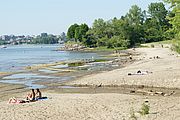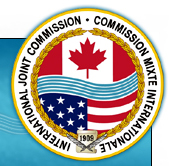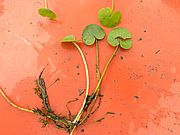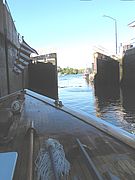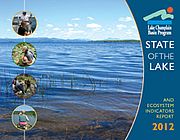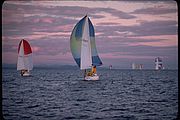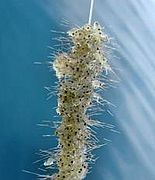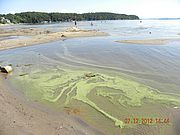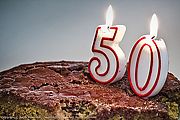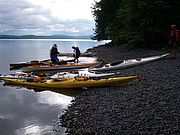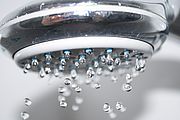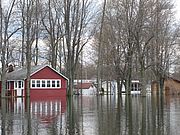A new international wine trail was unveiled at Snow Farm Vineyards in South Hero, Vermont in late September. Linking many wineries extending from Middlebury, Vermont, to Plattsburgh, New York and to Dunham, Québec, the Champlain Valley International Wine Trail will provide information to casual travelers and wine aficionados alike. MORE Read...
News from Selected Month
Strong winds out of the north during Hurricane Sandy led to a decrease in lake level at Rouses Point and an increase at Whitehall as waters were pushed south. The difference amounted to about four inches. Following the storm, the lake leveled out again. The effect was less extreme than what was seen during Tropical Storm Irene when nearly a foot of water was displaced. MORE Read...
Members are the lifeblood of LCC. Annual membership helps fund our work to protect and restore water quality, safeguard natural habitats, provide access, and educate and engage people in stewarding this beautiful waterbody. Our deep thanks to LCC members who renewed their membership or joined during July through September 2012. MORE Read...
Two recent proposals have shown that Lake Champlain is likely to be in the center of our region’s future energy transmission network. One project proposes to lay a power line at the bottom of Lake Champlain to transmit energy from large hydro-electric dams in northern Quebec to power-hungry consumers in the New York City region. MORE Read...
Join veteran kayaking instructor and Kokatat representative Suzanne Hutchinson for a cold water immersion clinic. The day-long program includes both inside instruction about the dangers of cold water paddling and how to prepare along with an outdoor portion on the water. Participants will learn about appropriate dress and skills for paddling in cold conditions. MORE Read...
Come join Lake Champlain Committee (LCC) board, staff and friends at the “Barnhouse" amongst the fields, farms, forests, and fossils of historic Isle La Motte, Vermont for LCC's 49th Annual Meeting. Learn about LCC’s work, get a status report on lake health, converse with other lake lovers, eat great food all in a beautiful lakeside setting courtesy of the Turner Dale families. MORE Read...
How is Lake Champlain doing? The Lake Champlain Basin Program released a new State of the Lake report this summer that helps answer that question. The State of the Lake comes out every three to four years to report on progress meeting water protection and restoration goals, track changes in the lake’s condition, and answer frequently asked questions. MORE Read...
The spiny waterflea, an invasive plankton species, was found in Lake George in early August. The species was found from at least four different locations in the lake in both the South Basin and in northern stretches. Now they have a direct connection to Lake Champlain from Lake George via the LaChute River. MORE Read...
On September 5 a group of paddlers set off from Ottawa Ontario in a voyageur canoe bound for Washington DC. They will follow an 1800 kilometer route on rivers, lakes and canals to learn more about local water issues and stimulate greater civic engagement and collaboration in protecting water resources. MORE Read...
The 7th Annual Eco-Fest takes place Saturday, September 8 from 11:00 AM until 5:00 PM at the Lake Champlain Community Sailing Center. Wander down to the Burlington waterfront for live music, good food, and to learn about regional conservation efforts. There will be equipment demos, short informational talks running every hour, and tips for environmental stewardship. A silent auction will raise money for LCC and other good causes! MORE Read...
Federal and state agencies are teaming up to host a National Prescription Drug Take Back Day on Saturday, September 29, 2012 from 10:00 AM until 2:00 PM. LCC encourages everyone to check medicine cabinets for unwanted, unused pharmaceuticals and safely dispose of them at a nearby collection site. More than 1.5 million pounds of medication were removed from circulation during four previous National Take Back Days. MORE Read...
Plattsburgh New York residents can safely dispose of expired, un-used or unwanted medications thanks to a new drug drop box located at the City Police Department on 45 Pine Street. The drop box was initiated by Plattsburgh Police Chief Desmond Racicot and Lt. Pat Rascoe after they saw one displayed at an international police chief’s conference earlier this year. MORE Read...
Starting in August and through the migration period, Lake Champlain’s smallest gull arrives, the Bonaparte’s gull. These are small graceful gulls with slender black beaks that sometimes act like terns, diving into the water. During the breeding season they sport an all black head. MORE Read...
What a difference a year makes! While the spring of 2011 brought record high lake levels, the summer of 2012 will be remembered for how low the lake dropped. As of August 31 the lake stood at 94.19 feet, about a foot and a half below average for this time of year. This is the lowest the lake has been since January of 2002. MORE Read...
The International Joint Commission (IJC) has been charged with defining a scope of work for a study or studies needed to address lake flooding. The charge follows record lake flooding in the spring of 2011. The IJC recently held public hearings in Saint-Paul-de-I’lle-aux-Noix, Quebec and North Hero, Vermont. MORE Read...
The Lake Champlain Committee continues our collaboration with Arrowwood Environmental to map vegetation in Lake Champlain, identify invasive species populations, and eradicate any newly established populations. In addition we will produce maps of the plant communities present. MORE Read...
When New York Governor Andrew Cuomo was still Attorney General, he weighed in on the side of Michigan when they called for Illinois to sever a century-old Chicago Canal because of the threat that Asian carp would move from the Mississippi River drainage into the Great Lakes drainage. Now, Lake Champlain is threatened by an invasive species, the spiny waterflea, which is found in the Champlain Canal. MORE Read...
The spiny waterflea, an invasive plankton species, was found in Lake George in early August. The species was found from at least four different locations in the lake in both the South Basin and in northern stretches. Now they have a direct connection to Lake Champlain from Lake George via the LaChute River. MORE Read...
How is Lake Champlain doing? The Lake Champlain Basin Program released a new State of the Lake report this summer that helps answer that question. The State of the Lake comes out every three to four years to report on progress meeting water protection and restoration goals, track changes in the lake’s condition, and answer frequently asked questions. MORE Read...
LCC is now on Facebook! We invite you to 'like' LCC's Facebook page. It's a great way to get the latest lake news, blue-green algae monitoring updates, beautiful lake photos, and other engaging content. MORE Read...
Watch LCC on Channel 17's Live at 5:25PM program if you weren't able to catch the original show. LCC staff discuss Lake Champlain water quality issues, blue-green algae and aquatic invasive species. MORE Read...
LCC’s work depends on the financial support of people and businesses that care about the lake and invest in our efforts to protect water quality, safeguard natural habitats and enhance recreational access. Our heartfelt thanks to the members who renewed, or joined between 04/01/12-06/30/12. MORE Read...
Earlier this month the spiny waterflea was confirmed in the Champlain Canal and the Glens Falls feeder canal. The spiny waterflea is an invasive plankton species native to Eurasia. The Champlain Canal is directly connected to Lake Champlain in Whitehall, so this invasive is now at our doorstep and, without immediate action, could soon enter the lake. MORE Read...
LCC’s blue-green algae monitoring program, now in its ninth year, got underway earlier this month. Thanks to a grant from Green Mountain Coffee Roasters, over 50 volunteers are checking water conditions on a weekly basis at more than 50 shoreline locations. MORE Read...
For many years, the New York State Department of Environmental Conservation has warned anglers that consuming yellow perch, brown bullhead, or American eel caught in Cumberland Bay posed a risk to their health. This year perch and bullhead were removed from the list. The perch and bullhead are now considered safe to eat because of actions taken over a decade ago to dredge PCB-laden sediments from the bay. MORE Read...
Do you have ideas for how we can commemorate half a century of lake advocacy? We want to hear from you. Volunteer opportunities abound in planning our 2013 birthday party. LCC was instrumental in working for Lake Champlain's health and accessibility in its first 50 years. MORE Read...
LCC is seeking site stewards for several locations along the Paddlers’ Trail. Stewards visit Trail sites at least once a month during the paddling season to check on conditions, pick up trash and report their findings to LCC. MORE Read...
Everything from fixing the leaks in your house to changing the watering patterns of your lawn can add up to big water savings. If you wonder whether the small changes you make really matter, consider this: each of us uses an average of 100 gallons of water per day – enough to fill 1,600 drinking glasses! Learn some tips to save water. MORE Read...
The Vermont Legislature passed and Governor Shumlin signed a bill that would prohibit fracking in Vermont. Lawmakers deliberated on a three-year moratorium but ultimately opted for a ban. LCC testified in favor of the legislation and strongly supported the prohibition. MORE Read...
The Vermont legislature ended up merging and then passing lake and river bills that had been considered during the session. The larger bill institutes a suite of programs that will help Vermont prepare for and cope with future flooding issues. MORE Read...
